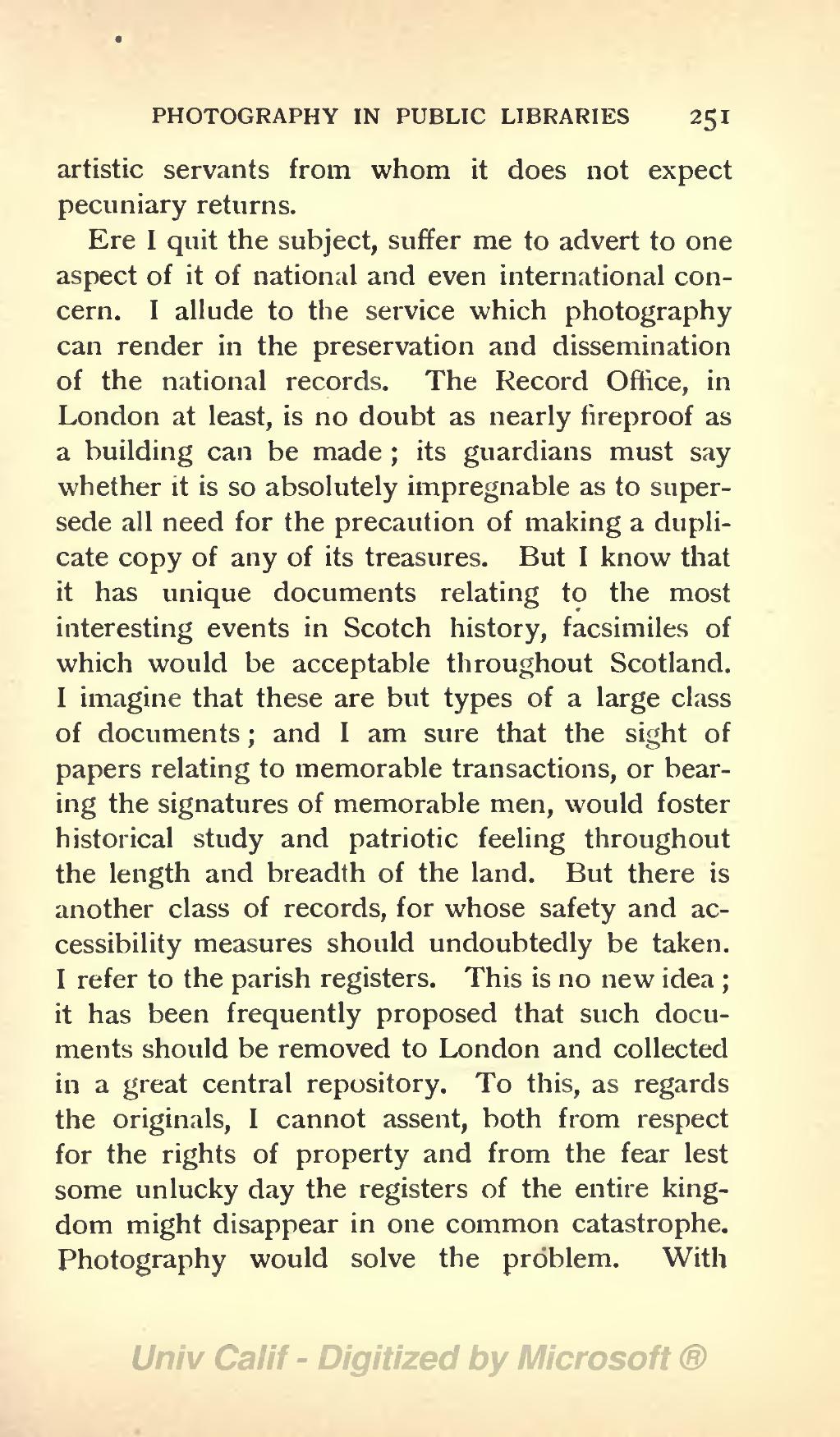artistic servants from whom it does not expect pecuniary returns.
Ere I quit the subject, suffer me to advert to one aspect of it of national and even international concern. I allude to the service which photography can render in the preservation and dissemination of the national records. The Record Office, in London at least, is no doubt as nearly fireproof as a building can be made; its guardians must say whether it is so absolutely impregnable as to supersede all need for the precaution of making a duplicate copy of any of its treasures. But I know that it has unique documents relating to the most interesting events in Scotch history, facsimiles of which would be acceptable throughout Scotland. I imagine that these are but types of a large class of documents; and I am sure that the sight of papers relating to memorable transactions, or bearing the signatures of memorable men, would foster historical study and patriotic feeling throughout the length and breadth of the land. But there is another class of records, for whose safety and accessibility measures should undoubtedly be taken. I refer to the parish registers. This is no new idea; it has been frequently proposed that such documents should be removed to London and collected in a great central repository. To this, as regards the originals, I cannot assent, both from respect for the rights of property and from the fear lest some unlucky day the registers of the entire kingdom might disappear in one common catastrophe. Photography would solve the problem. With

